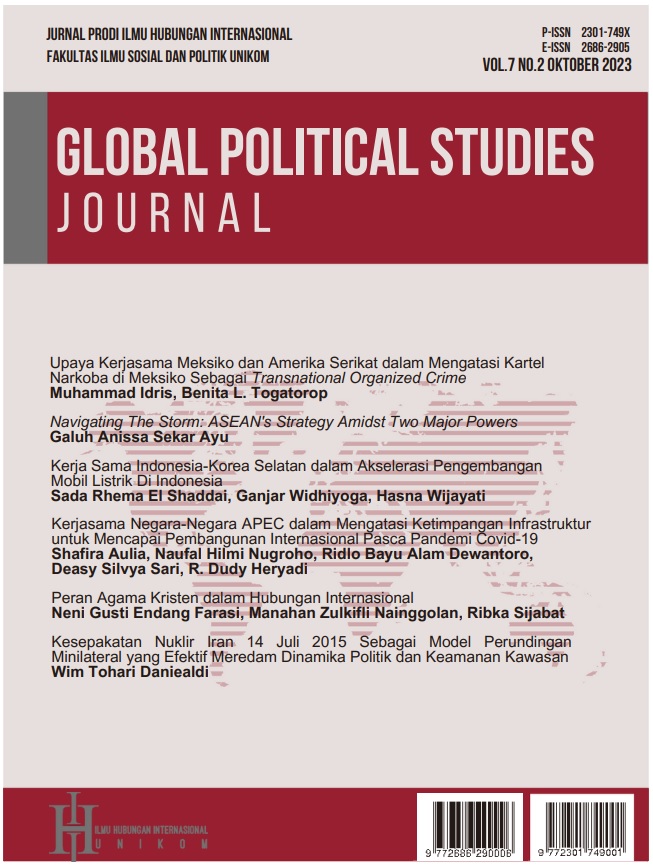Peran Agama Kristen dalam Hubungan Internasional
Abstract
Although religion has never been absent from international relations, since the Iranian Revolution, the end of the Cold War, and the events of 9/11, the international community has renewed interest. Questions centered on the role of religion in peace and conflict, the compatibility of religious laws and norms with different government systems, and the influence of religious actors on various issues. Reliance on Enlightenment assumptions, which associated "religion" with the irrational, magical, or emotional, led many to regard religion as inappropriate for the public sphere and a key factor in causing conflict. On the other hand, the same assumptions lead to the association of the "secular" with reason, proper forms of government, and peace. Some scholars challenge such a dichotomous framework. Scholars who wish to avoid broad generalizations and problematic assumptions about religion must move beyond Enlightenment assumptions and approaches that treat diverse religious communities, actions, and ideas as inherently “good” or “problematic.” To do so, scholars must reflexively engage with religion, paying attention to their ontological assumptions and the consequences of those assumptions for religious and political analysis. In addition, scholars must place the practices, principles, and identities of individuals and religious communities within a broader historical and geographical context to understand the important factors that inform their ethical framework. There are several approaches concerned with interpretation, practice, and ethics, including neo-Weberianism, positive ethics, securitization theory, and the relational dialogical approach. These approaches provide alternatives to essential ideas about religion and explain why and how religious practitioners choose some possible actions over others.
Keywords—Religion, Secularism, International Relations, Ethics, World Politics












